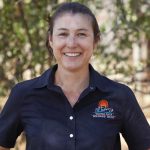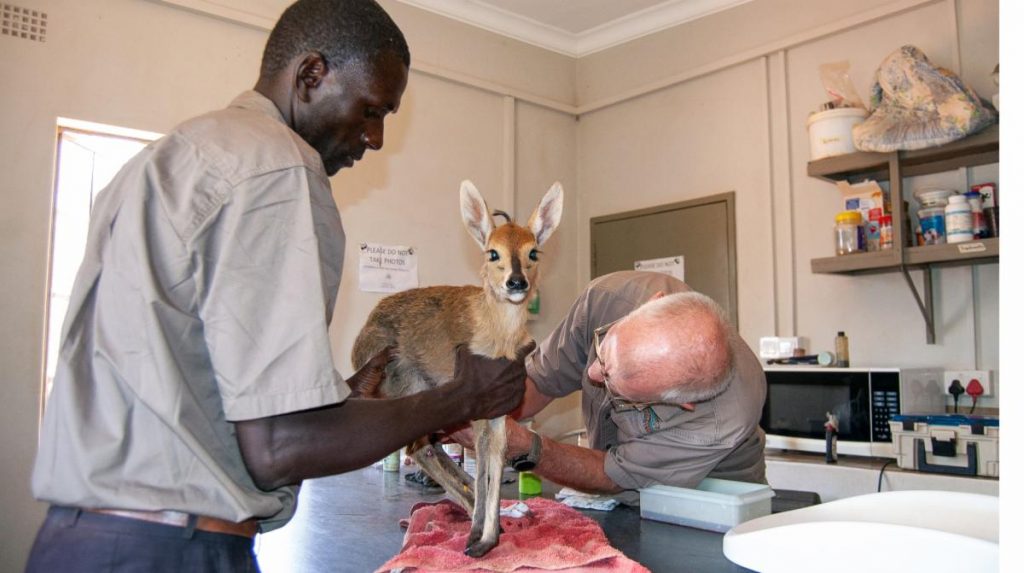APPEAL – DUIKER RESCUE
Unsupervised dogs attacked a young duiker in a nearby rural area a few weeks ago. A good Samaritan, Mr. Titus Maseko, found the badly injured duiker and sent word that she needed help. Our team wasted no time in bringing her back to our High Care Rehabilitation Centre.
Roger carefully cleaned, sutured, and dressed her wounds. Antibiotics and anti-inflammatories were given to ease her pain and speed up healing. Later, she gobbled down a specially formulated milk. Things look good for her. (See video below.)
Village dogs are often used to hunt wildlife, the owners then take the kill to feed their families. But, this time, Mr. Maseki called for us. Because of our community engagement, we’re affecting change in this deep-rooted culture of illegal hunting with dogs.
We don’t know how this duiker ended up alone and vulnerable. Her stay with us will be long. Her wounds were deep, and she’s still in a cast. But she’s doing well, eating solid food from carefully selected vegetation, and will eventually be weaned off formula. It’s a testament to the incredible spirit of this duiker that her prognosis is a full recovery.
It’s also a testament to you. It inspires our team to see meaningful shifts in the value placed on wildlife by rural Zimbabweans. I hope it inspires you too. And I hope that you’ll continue supporting our rehabilitation work. Thank you!
For wild Africa,
Jessica Dawson
Chief Executive Officer

Wildlife Research and Conservation Manager, Roger Parry treats a young female duiker after being attacked by rural dogs in Monde rural area adjacent to Victoria Falls National Park.

Duikers are small, shy antelopes often spotted darting between dense bush cover. In fact, the name “duiker” means “diving buck” in Afrikaans.
|



